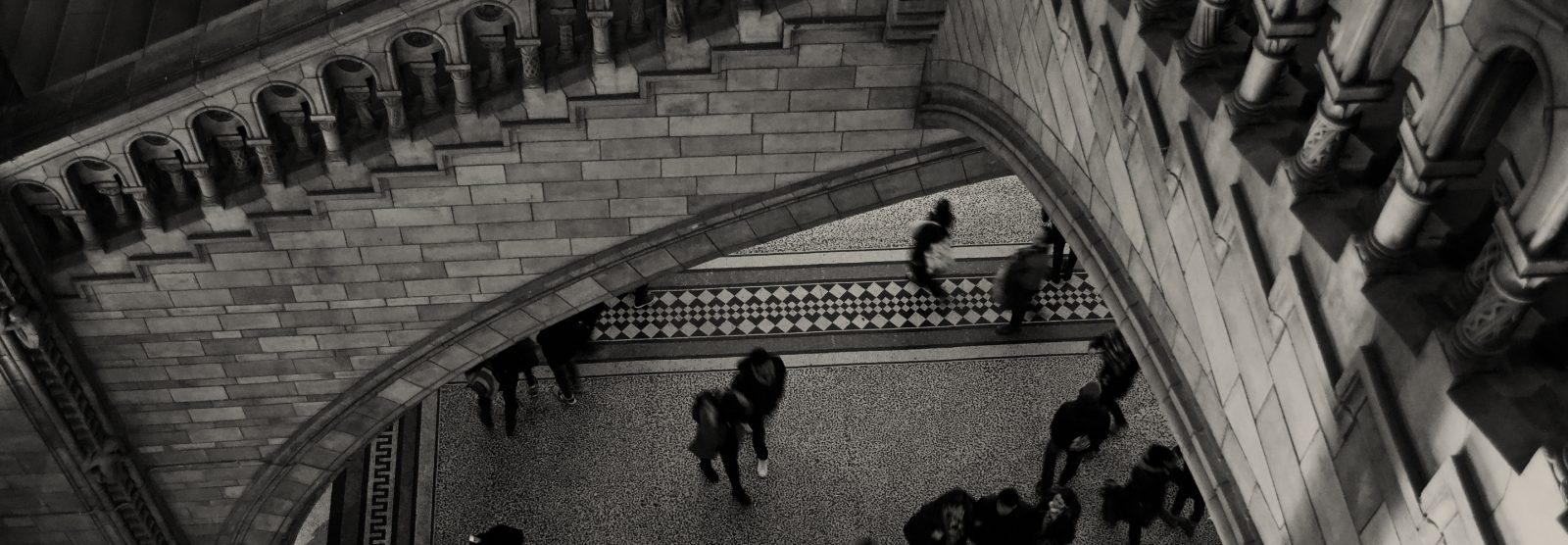Unsafe on Campus
Policing on college campuses falls hardest on formerly incarcerated students, leaving them and the broader community unprotected.

TOPICS
159 posts in ‘Institutions & Practices’
Policing on college campuses falls hardest on formerly incarcerated students, leaving them and the broader community unprotected.
So-called “smart” borders are just more sophisticated sites of racialized surveillance and violence. We need abolitionist tools to counter them.
The Gospel narrative places on Christians a moral burden to not turn away from the sexual vulnerability of incarcerated people today.
A new book centers prisons in the history of U.S. empire, reminding us of the need for international solidarity in the fight for freedom.
In the criminal system, having your life constrained and restricted, even after your sentence is over, has become a fact of life.
In prison, even learning about your own reproductive health is met with repression.
Society isn’t being done any favors keeping literature out of the hands of incarcerated people.
Censorship should not be the mechanism by which prisons ensure security or any other goal they purport to have.
The state spies upon and infiltrates social movements to keep people on guard, afraid, and second-guessing their every move.
Probation and parole in the United States don’t work. A longtime reformer and advocate has drawn a blueprint to end them.
Better research won’t get us out of our crisis of mass incarceration.
Erasing court costs and fines is a relatively small change that would have an outsize impact on those harmed by mass incarceration.
In Atlanta politicians are pushing for a bigger jail they claim will be more humane. But health-care workers are pushing back.
There are many forms of resistance undertaken by relatives and friends of incarcerated people, but the system renders them invisible.
A new film reminds us that caring about survivors means working to prevent and respond to all violence—including carceral violence.
The lives of undocumented immigrants are very much documented—subject to the surveillance that’s endemic to contemporary life in the United States.
The crisis of colonized cities and state criminality. The first installment in a two-part series.
We must challenge the dominant carceral narrative that one is born an addict and a criminal—rather than constructed as one by those in power.
Criminalizing pain medicine has led patients to despair while the carceral state forces their medical decisions. But it has also opened avenues for solidarity between pain sufferers and incarcerated people.
Reentry is an extension of the carceral continuum, a limbo between confinement and freedom.
Carceral settings imprison an untold number of experts—outsiders on the inside who have much to teach us about mass incarceration.
How organizing workers in immigrant detention can serve as a foundation for abolition and liberation for all.
A new research project seeks to understand present prison labor conditions—and build a path toward lasting freedom.
The U.S. history of coerced prison work is older—and more northern—than its popular origin story tends to acknowledge.
Calling incarcerated people 'workers' displaces the gravity of their situation and obscures the nature of carceral violence.
The carceral state molds and enforces worker compliance, vulnerability, and insecurity—both within and beyond prison walls.
Disentangling medical care from policing, prisons, and other punitive institutions remains an imperative—now more than ever.
For the scores of people who have suffered on Rikers Island, their experiences, and scars, of living through it remain long after release.
In immigration court and beyond, fair process matters. But fair laws, fair legal systems, and fair societies matter far more.
Fiscal arguments have only led to a reconfigured carceral state—one that replaces one type of punishment for another while still harming millions.